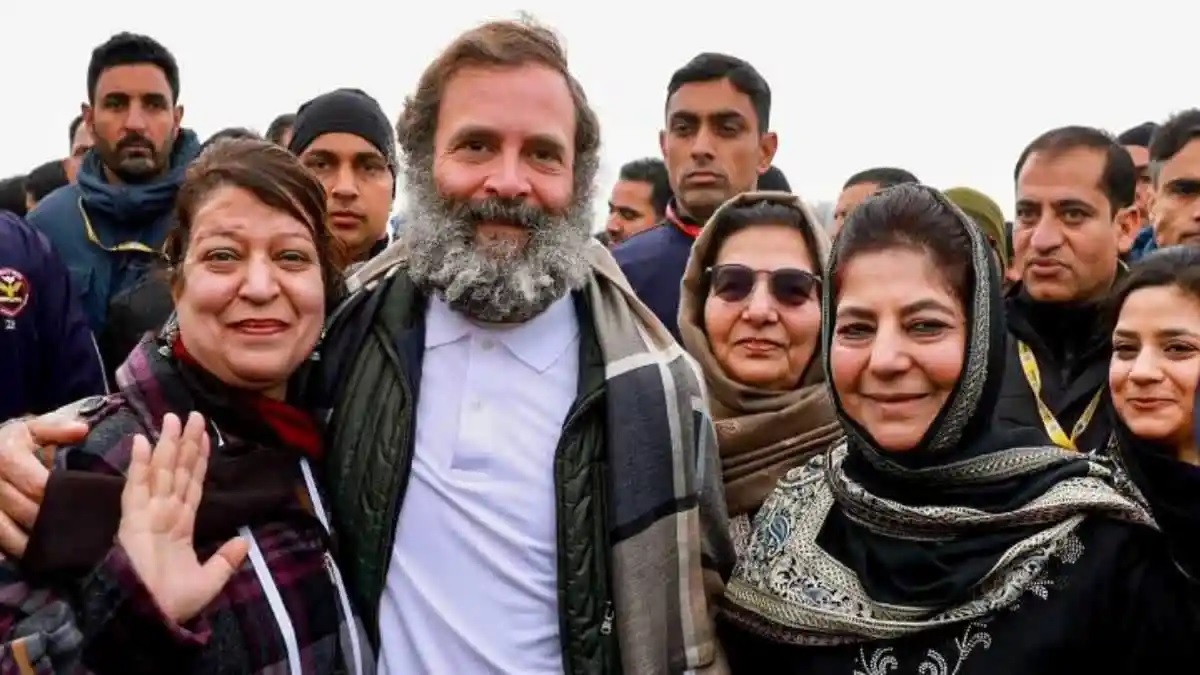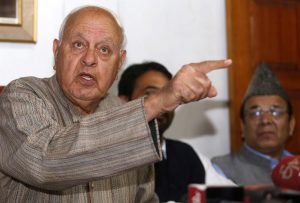
Rahul Gandhi Steps In to Break Deadlock Between Archrivals NC and PDP in Jammu and Kashmir
In a significant move aimed at defusing tensions and fostering political stability in Jammu and Kashmir, Rahul Gandhi, the prominent leader of the Indian National Congress (INC), has intervened to end the longstanding deadlock between the archrivals National Conference (NC) and Peoples Democratic Party (PDP). This intervention comes at a crucial juncture, as the region grapples with political uncertainties and strives for a path towards reconciliation and progress.
The political landscape of Jammu and Kashmir has been marked by decades of complex dynamics, with the NC and PDP emerging as prominent political players representing distinct regional and ideological interests. However, in recent years, the relationship between the two parties has been characterized by intense rivalry and deadlock, contributing to political instability and impeding the region’s development.
Rahul Gandhi’s decision to intervene underscores the importance of dialogue and consensus-building in resolving political impasses and fostering a conducive environment for democratic governance. His proactive approach reflects a commitment to promoting inclusive politics and addressing the aspirations and concerns of all stakeholders in Jammu and Kashmir.
The deadlock between the NC and PDP has centered around critical issues such as government formation, power-sharing arrangements, and policy priorities, reflecting divergent visions and interests within the region. The inability to reach a consensus has not only hindered effective governance but also fueled social tensions and disenchantment among the populace.
Rahul Gandhi’s intervention is expected to provide a fresh impetus to the stalled political process in Jammu and Kashmir, offering a glimmer of hope for reconciliation and progress. By engaging with key stakeholders and facilitating constructive dialogue, he seeks to bridge the divide and pave the way for meaningful cooperation and collaboration between the NC and PDP.
The significance of Rahul Gandhi’s initiative extends beyond partisan politics, reflecting a broader commitment to upholding democratic values and principles. In a region grappling with multifaceted challenges, including security concerns, socio-economic disparities, and governance deficits, the need for inclusive and participatory governance mechanisms cannot be overstated.
As Rahul Gandhi navigates the delicate intricacies of Jammu and Kashmir’s political landscape, he faces formidable challenges and entrenched interests that require skillful navigation and steadfast determination. Building trust, fostering consensus, and charting a shared vision for the region’s future will require sustained efforts and a genuine commitment to dialogue and cooperation.
While the road ahead may be fraught with uncertainties and complexities, Rahul Gandhi’s intervention represents a beacon of hope for Jammu and Kashmir, signaling a renewed commitment to democratic principles and inclusive governance. By transcending political divides and embracing the spirit of cooperation, he aims to unlock the region’s full potential and usher in an era of peace, prosperity, and progress.
In conclusion, Rahul Gandhi’s intervention to end the deadlock between the archrivals NC and PDP in Jammu and Kashmir marks a significant step towards fostering political stability and reconciliation in the region. As the political landscape continues to evolve, his efforts underscore the importance of dialogue, inclusivity, and consensus-building in addressing the region’s complex challenges and charting a path towards a brighter future.
More Stories
Kashmir’s Power Crisis: Article 370 Dominates Election Discourse
There is palpable discontent over the government’s failure to deliver on promised development following the scrapping of the State’s special...
Unpacking How BJP’s Withdrawal From Kashmir Valley Election Shaped NC and PDP’s Fortunes
The BJP has fielded its candidates in Udhampur and Jammu and is backing its allies, People's Conference and Apni Party,...
Wont Contest If Opposition Guarantees Article 370 Restoration: Sajad Lone
Lone said challenging the abrogation of Article 370 in SC might have been a mistake, but not doing so would...
Flickering Hope: Residents in Kashmir Face Power Cuts Despite Reforms
Kashmiris have been facing the brunt of power cuts in recent weeks, raising questions about the efficiency of the Kashmir...
Leaders Test Waters for Assembly Elections Amidst Lok Sabha Poll Campaigning
With Lok Sabha elections for Jammu constituency scheduled for April 26, many senior leaders of both Congress and BJP are...
Mehbooba Mufti Accuses BJP of Polarising Voters Amid Fear of INDIA Bloc’s Acceptability
You will have to understand that vote and voice are our weapons to fight for our rights and against highhandedness....

